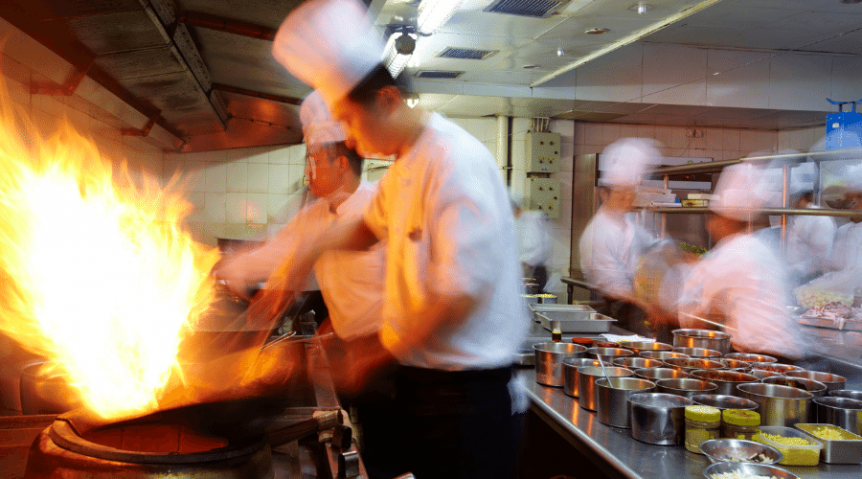A thriving restaurant busy preparing sumptuous dishes throughout the day will undoubtedly be overcome by offensive odors. Frying oil smoke, burned meat, and raw seafood are just a few contributors to smelly restaurants. Here are tips to remove unpleasant odors.
Not all restaurants have the luxury of opening up their windows year-round. Old Man Winter can force restaurants to keep the windows in the back kitchen shut. Unfortunately, as odors accumulate, they can travel to the front-of-house and offend restaurant customers and guests.
Using air fresheners to reduce the awful smells is ineffective since they can potentially affect the smell and taste of food once it’s served. Plus, air fresheners only mask the bad odors instead of removing them. Air fresheners can smell good to some customers but not to others.
Commercial air fresheners are an added expense. A restaurant that deals with a continual odor problem will have to replenish the stock of air fresheners month after month—and the costs can significantly add up. Utilizing air fresheners is an ineffective and expensive way of dealing with restaurant odors.
Tip #1: Increase Ventilation
Fried oil smells should, ideally, be directly addressed, rather than covered up by artificial means. Ventilation is one key way to minimize or outrightly eliminate the odors resulting from frying food. Turn on the fans to direct odorous air outwards and, if weather permits, open the windows.
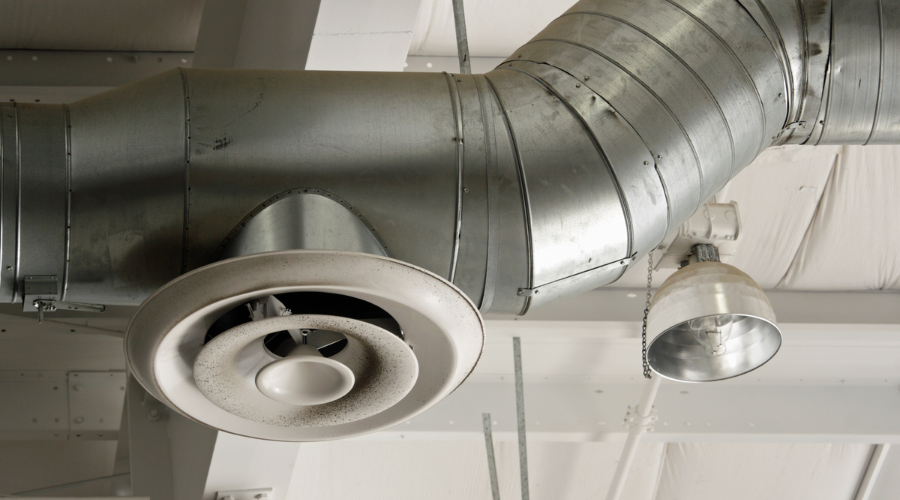
Tip #2: Install Carbon Filters
Carbon filters are an effective way to filter out odors without masking them. The filters absorb odors through a filtering mechanism. Carbon filters are typically installed in the duct work, so it may be an added expense to install them in areas where electricity can push air through the system.
Activated carbon is a reliable tactic that removes unwanted odors and pollutants via a process of absorption. The micro and macro pores inside the filters pull molecules and hold them on their surface. Since the filters can become saturated, they must be regularly replaced.
Tip #3: Close the Doors
Frying oil smoke and odors starting in the kitchen can be kept from being distributed to the front-of-house. The doors to the kitchen act as a barrier, and closing them prevents odor molecules from spreading to areas where customers are served and dine.
Tip #4: Clean Up Promptly
Cleaning the kitchen immediately after frying food can make an instant difference in how the restaurant smells. Wash pots and pans used to fry the food. Wipe down the stovetop, griddle, grill, range, flattop, and fryer on which the food was fried.
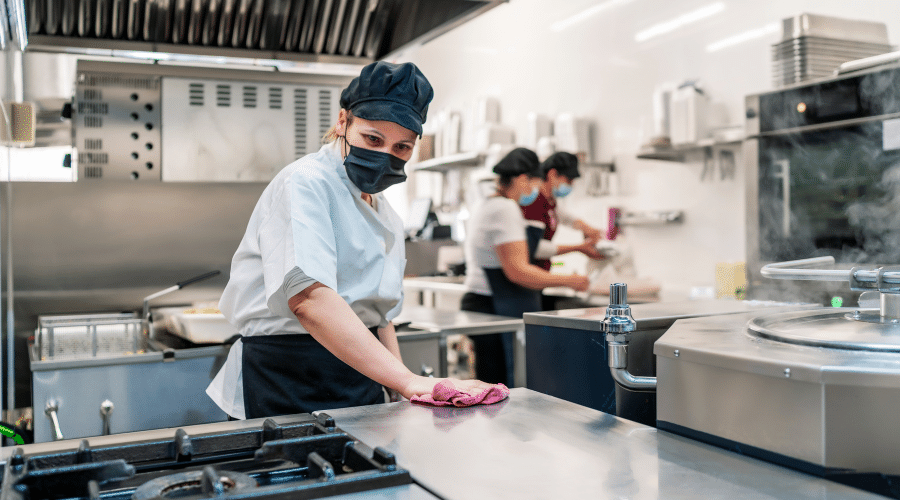
Use a kitchen degreaser to clean nearby walls and counters. Disinfect food prep surfaces. Even the sink should undergo a thorough cleaning on a daily basis. The rags and towels used to clean up should also be laundered in the restaurant washing machine at the end of each day.
Food waste from the refuse storage areas can cause awful smells that build up and worsen over time. If the storage area is near the front-of-house, the odors will inevitably travel to that area. Keep the restaurant clean and odor-free by taking out the trash daily.
Tip #5: Use White Vinegar
Vinegar is a staple in restaurants. Use vinegar to neutralize restaurant smells. Vinegar is acidic, thereby making it a potent liquid that absorbs basic odors, including grease. At the end of the day, pour vinegar into a bowl, close the doors and window, and allow the liquid to sit overnight.
In the morning, the restaurant smells will have diminished, thanks to the odor-absorbing properties of white vinegar. Take the odor control a step further by mixing vinegar and water and spraying areas from which the smells originate, then wipe with a clean cloth.
Tip #6: Install an Ionization Unit
Restaurants have the option to adopt the cost-effective method of ionization to tackle unwanted smells. The unit can be installed on the walls where most of the odors linger. Using electricity, the ionization system discharges ions into the vicinity, thereby combating the smells through oxidation.
Tip #7: Run an ozone cleaner
Ozone cleaners tackle odors at the molecular level. Even stubborn and persistent odors can be successfully resolved by using a durable ozone cleaner inside the restaurant. In fact, ozone treatments are regularly used to clean exhaust from commercial kitchens of all types.
Cooking fumes contain a large amount of grease particles, odor molecules, and soot. Large grease particles from the kitchen can become trapped when left unaddressed. Small airborne grease particles can also become lodged in the ventilation duct fan and pass into the environment.
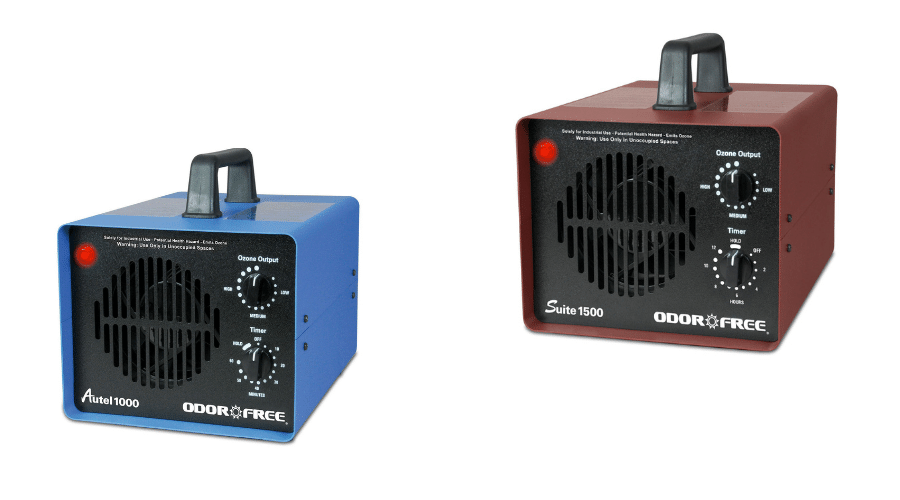
Grease particles should be cleaned up right away. Accumulating grease particles can ignite in the heat of the restaurant kitchen, making them a fire hazard. Prevent a cooking fire by eliminating the grease as well as the frying oil smoke and odors. If a fire ignites, contact ServiceMaster DRR.
As a fire and smoke damage restoration company with a team of licensed and insured technicians, we efficiently tackle fire and smoke damage every day. Our expert handling ensures that the smoke damage inside your restaurant or other type of commercial property is fully cleaned.
Smoke damage spreads quickly in the aftermath of a fire. Preventing permanent damage to goods inside the property and the structure itself requires the immediate attention from our experienced cleanup crews. We clean and restore materials affected by fire and smoke damage and remove smoke odors.
Do not delay in contacting ServiceMaster DRR when you are faced with fire and smoke damage. Our skilled cleanup professionals will return your fire and smoked damaged property to its pre-loss condition. We work swiftly so you can return to your daily routine as soon as possible.
Home and business owners in San Francisco, Santa Clara CA, San Mateo CA, Palo Alto CA, San Carlos CA, Sunnyvale CA, Cupertino CA, Foster City CA, depend on ServiceMaster DRR for our expertise in handling fire and smoke damage, our promptness and our excellent customer service. Call us 24 hours a day at (415) 584-6100 when you need high-quality fire and smoke damage cleanup services.
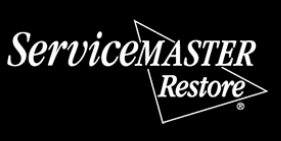
Steve VanDenBerg is the owner of ServiceMaster Disaster Restoration and Recovery. He has over 30 years of experience working within the restoration industry and successfully leading start-ups, turnarounds, acquisitions and mergers, and rapidly growing companies.
Steve earned his BS in Business & Accounting from Calvin University in Grand Rapids, MI and began working for DSI Holdings as their Chief Financial Officer. When Steve began with DSI Holdings, they were running an underperforming ServiceMaster Restore franchise with one location. Steve implemented new policies and procedures for accounting and finance as well as a professional sales plan that increased profits eightfold over his time as the CFO. He was then promoted to President and CEO and in this time, he expanded the company from two locations with $4M in sales to 12 locations and $45M in sales. DSI Holdings became one of the largest disaster restoration companies in the U.S. and helped with major restoration projects throughout the U.S. and around the world.
Steve purchased ServiceMaster DRR in 2015 when the business was in decline. Drawing on his years of experience in turning around struggling ServiceMaster franchises, Steve overhauled our operations, including finance, sales, and marketing, which led to a quick turnaround. Within Steve’s first 24 months, sales increased by 60 percent. Steve also helped greatly improve our operating margins and established a relationship with California’s largest residential insurance company. Under Steve’s leadership, we have become one of the largest disaster restoration providers in California.
Steve has found great success in turning around struggling and stagnant restoration franchises by changing the business model and strategy, greatly increasing sales and profits. Many of the changes he has implemented have even been adopted by the franchisor into their operating model.



